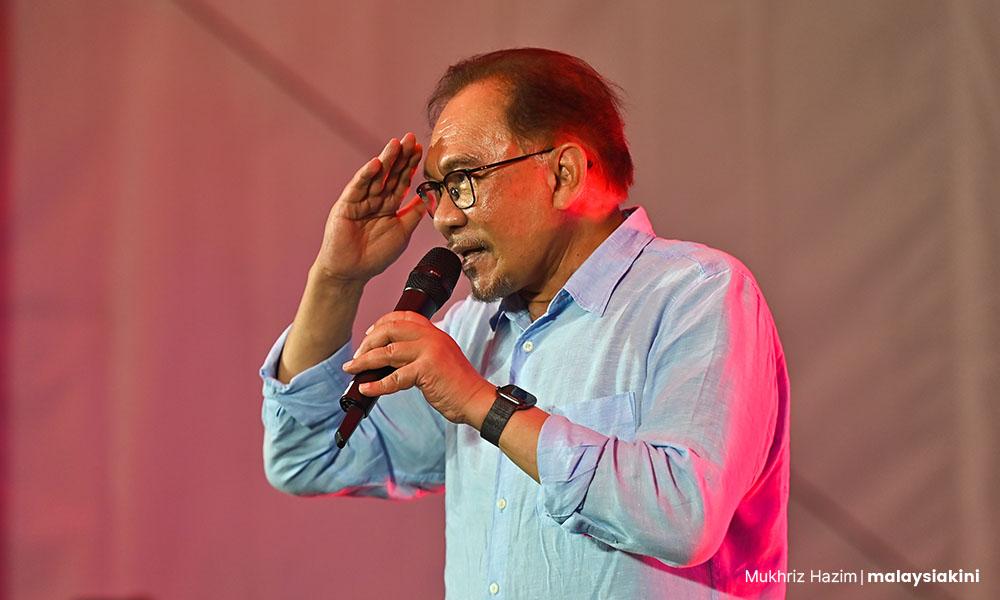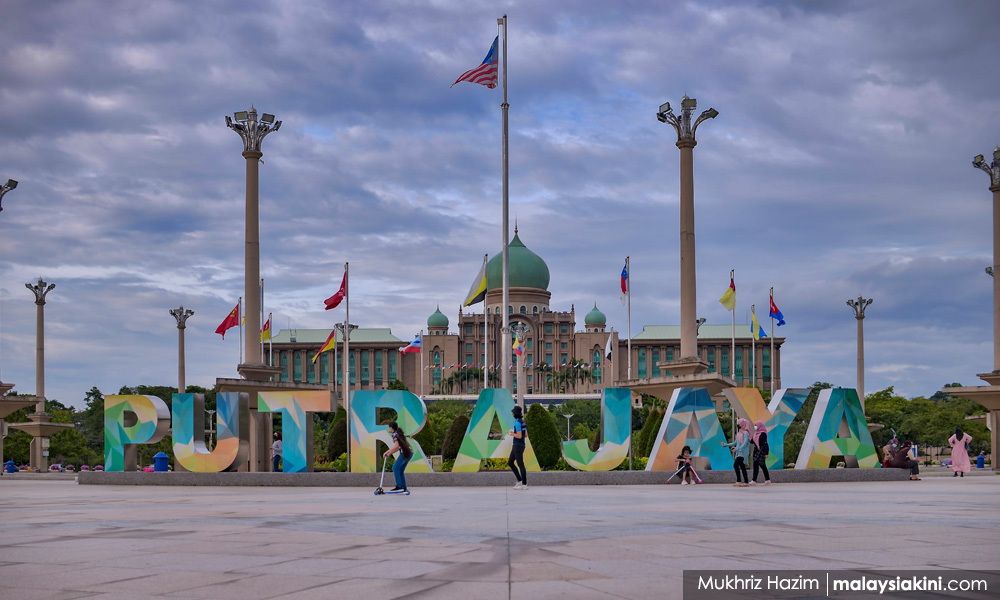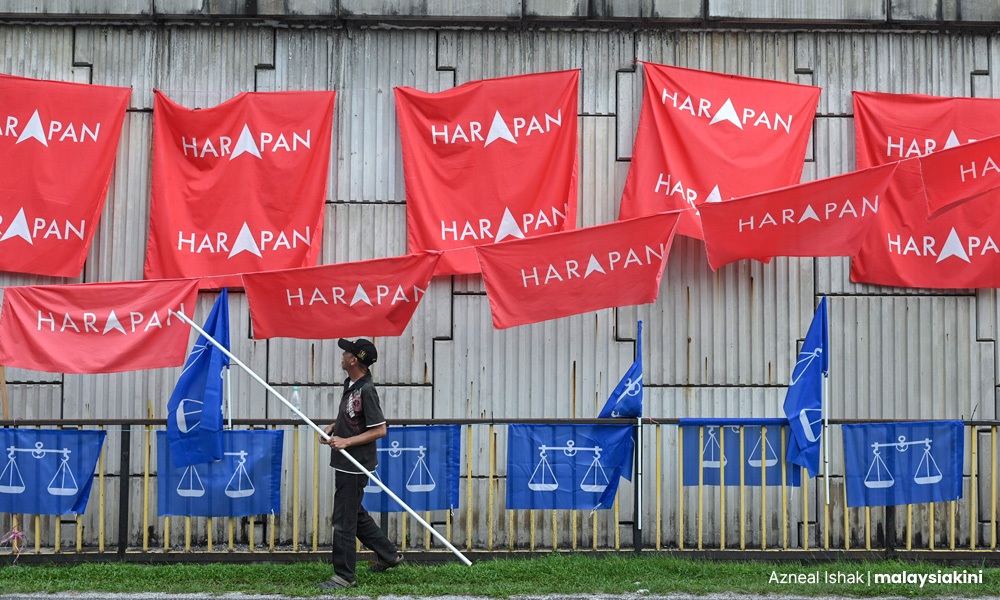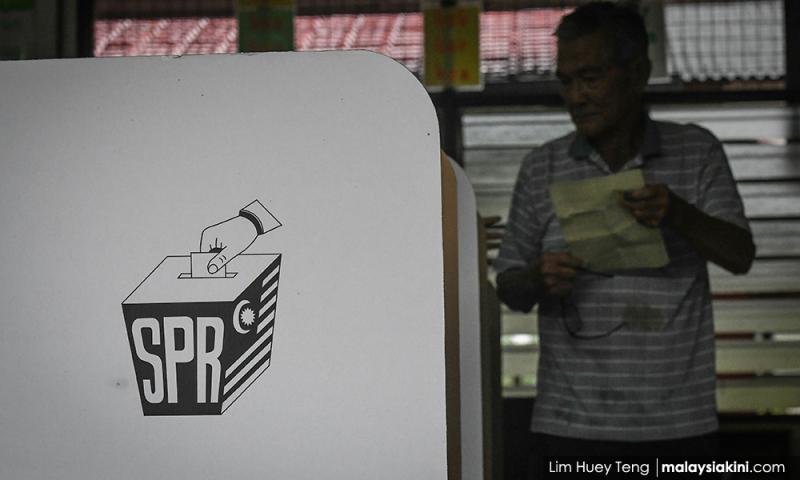LETTER | Come Aug 12, cast your votes for a better future
LETTER | Aug 12 will be regarded as D-Day for Malaysian politics. Many voters have reportedly lost interest in these state polls as they view them as unimportant compared to GE15.
They are also frustrated with the BN-Pakatan Harapan alliance, especially Harapan's decision to work with former arch-rival Umno.
A few have also expressed disappointment over the lack of action by the BN-Harapan government to tackle the mounting cost of living, weak ringgit, and the rising overnight policy rates (OPR), which resulted in higher costs of borrowing.
Let us look at some of the political developments post-GE15. In the aftermath of GE15, clearly, no single party was able to form a majority in Parliament and the Yang di-Pertuan Agong had to intervene with the suggestion that a unity government be formed to resolve the deadlock.
Anwar Ibrahim was chosen as the prime minister as Harapan had the largest bloc compared to Perikatan Nasional, BN, GPS, and GRS.

Just imagine, if Harapan had rejected the suggestion of the king, Malaysia would have been without a government. This could have damaged the economy and deterred foreign investment.
The value of the ringgit is determined by many factors, among others, interest rates differential. Look at Japan which decided to keep its interest rates near zero even after the US Federal Reserve Board started to raise interest rates aggressively.
Consequently, the Yen had depreciated 24 percent against the US dollar and had also weakened seven percent against the already weak ringgit since mid-March 2022.
Malaysia's household debt to GDP is one of the highest in this region and it would be imprudent for Bank Negara to raise interest rates aggressively to defend the ringgit as it could cause potential financial instability to the banking system.
The rising cost of living is a global wide phenomenon, and nobody escapes from it. Yes, many Malaysians have suffered but relatively Malaysians are fortunate as prices of petrol, electricity and essential items like flour and sugar have not seen any price increase due to the subsidy mechanism, which cost the government billions of ringgit.
Aren’t Malaysians blessed? Yes, the world is in bad shape, but our situation is still very manageable and most of us still have a job.

To reform the economy, the government has come up with a few plans which include attracting foreign investment, a progressive wage structure, food security initiatives, and labour market restructuring to attract skilled and trained workers.
More measures would be expected to be announced after the state elections once a firm mandate is obtained.
In the medium to longer term, once these measures are successfully implemented, we can expect the ringgit and capital market to strengthen further as these measures would result in higher foreign export proceeds, increased foreign direct investment, and also increased domestic direct investment.
A progressive wage structure and the skilling of workers would result in a better standard of living and also put Malaysians in a better position to cope with inflationary shock in the future.
Food security initiatives would result in the agriculture sector being promoted, resulting in a higher supply of agricultural produce, which will bring down the prices of food.
In simple terms, all these measures will result in a stronger ringgit, better standard of living, and lower inflation in the future.

But the simplest task of all is this: cast your votes wisely come Aug 12 and let the current government be kept in power so that more reforms can be undertaken to heal this nation and make it great again.
Should they fail to do so in the next four years, we Malaysians can vote them out.
Bear in mind, we have a new prime minister, cabinet ministers, and new partners in the coalition. Proper planning, arriving at a consensus in a coalition government, and execution need time. Learning from the post-GE14 experience, changes cannot be too drastic as it might cause anxiety and instability.
Should Selangor, Penang, or Negeri Sembilan fall into the hands of Perikatan Nasional, this will send a signal to Malaysians and investors that the coalition is losing popularity and at best it can last for another four years, if not sooner.
The opposition would seize the opportunity to persuade the non-Harapan blocks to switch sides, telling them that the unity government is a sinking ship.
At a crossroads
I am sure my fellow Malaysians are sick and tired of the political uncertainties post-GE14. Should political uncertainty or even the perception of rising political uncertainty arise again, many investors would not want to commit to long-term investment in Malaysia.
Malaysians, too, would feel increasingly uncomfortable and would start liquidating their assets - property, shares, and business - in favour of foreign assets, which is one of the main reasons why the ringgit is structurally weak over the past decades.
Today, we are at a crossroads and this is our last chance to do something meaningful. Sitting out of the state elections could be a fatal move: we have ourselves to blame if wake up the next day feeling utterly despondent.
The government has already laid out its plans; it needs our firm support and affirmation. I believe there are more initiatives to come to give Malaysians a better future and we need to do our part.
See you at the polls.
The views expressed here are those of the author/contributor and do not necessarily represent the views of Malaysiakini.
RM12.50 / month
- Unlimited access to award-winning journalism
- Comment and share your opinions on all our articles
- Gift interesting stories to your friends
- Tax deductable
